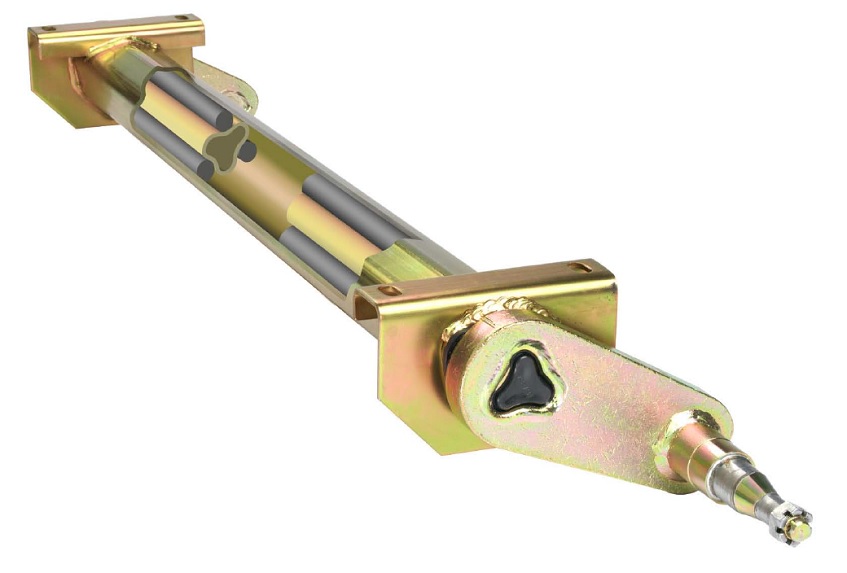There are many reasons you’d want to upgrade your trailer suspension system. Here are some of the most common.
To enhance the trailer’s load carrying capacity
Upgrading individual components can increase the maximum load carrying capacity of the trailer. Common leaf springs as well as coil springs and dampers/shock absorbers can all be upgraded to provide greater load carrying capacity.
Your suspension’s maximum load rating should be as close as possible to what is required of the trailer, for example fitting 900 kilogram-rated springs on a trailer with a 750-kilogram aggregate trailer mass (ATM).
However, contrary to accepted logic, bigger isn’t always better. As an extreme example, installing 2,000 kilogram-rated springs on the same trailer will likely result in poor performance and cause premature tyre and bearing wear as the ‘underloaded’ springs will cause the wheels to sit incorrectly on the road.
To improve the trailer’s performance
If you’re going off the beaten track, upgrading your trailer suspension can help improve the trailer’s performance. When off-roading, you may need extra ground clearance and/or suspension travel.
If you want to increase your trailer’s ability to handle uneven terrain or withstand the rigours of corrugated roads, a rubber torsion axle (pictured) is about as good as it gets. It has fewer moving parts and each wheel moves independently. This axle also improves a horse float’s smoothness as its design negates the need for shock absorbers.
Note that modifying your trailer’s geometry could change the relationship between it and your tow vehicle and therefore the towball mass (TBM).
To improve the trailer’s reliability
Changing ageing painted or uncoated springs and axle(s) and fitting galvanised or zinc-plated replacements will increase your trailer’s lifespan. A key benefit of a galvanised, rubber torsion axle is that with few moving parts it requires very little maintenance and should provide tens of thousands of kilometres of service.
Most of these modifications will need compliancing and your trailer may need re-registering – a process that varies between states and territories. You will need to get an accredited engineer or workshop to inspect and rate any modifications you undertake. You will also need to have the trailer weighed to have a certificate issued.
Although it requires a bit of homework and some professional advice, upgrading your trailer suspension can help extend its life while also improving its performance.
Now let’s look at which spares you’ll need when you’re on the move.





